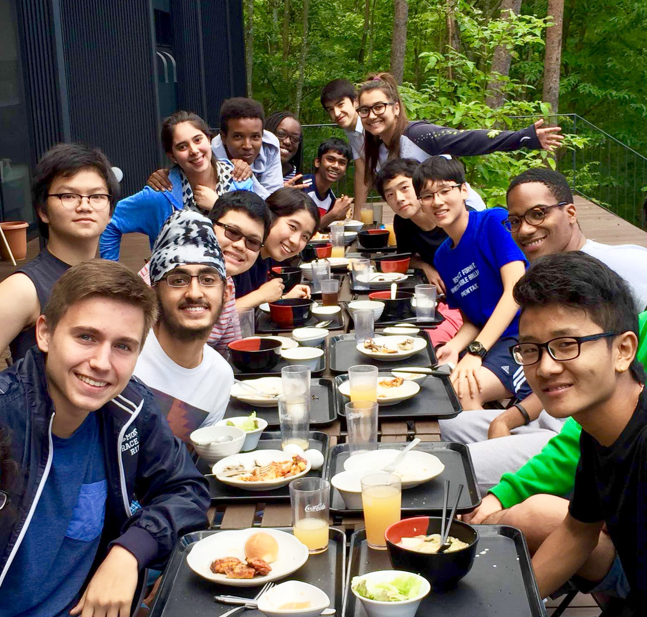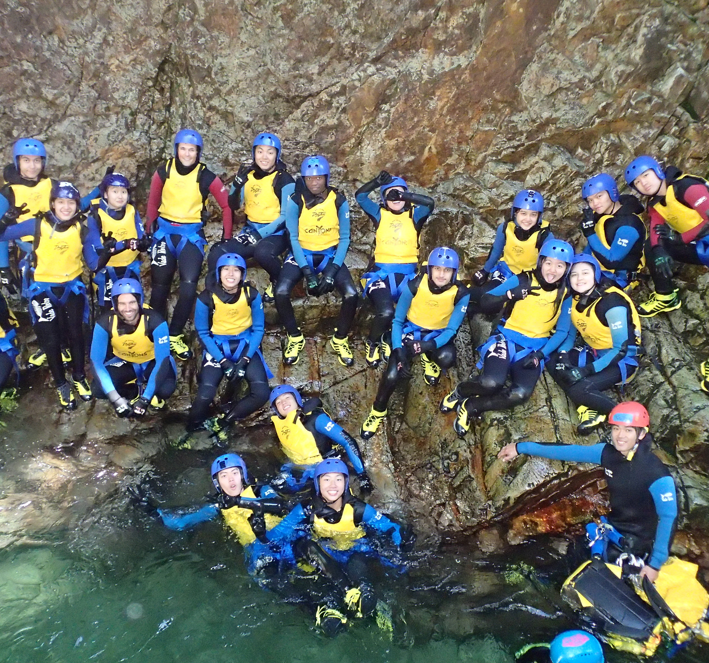UWC ISAK Japan
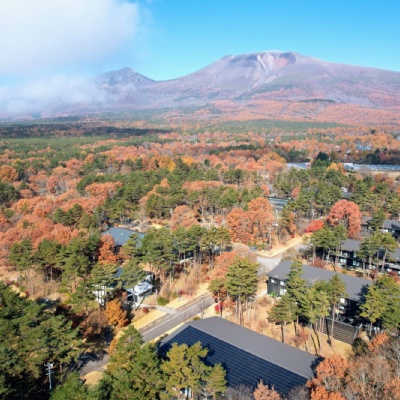
Karuizawa, Japan
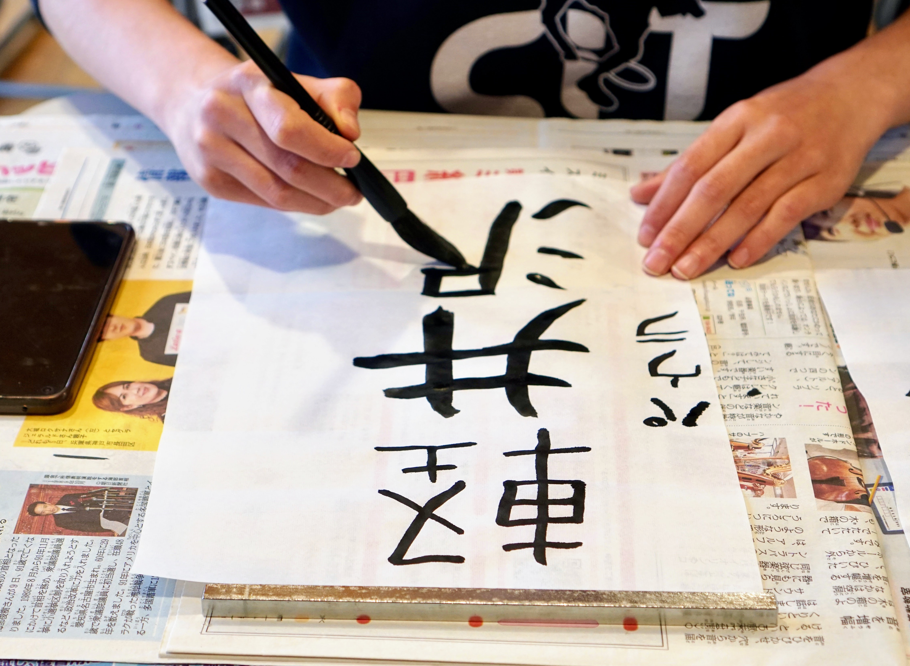 200 students, aged 15 to 18
200 students, aged 15 to 18- Founded - 2017
Located in Karuizawa, UWC ISAK Japan opened in 2014 and became a UWC school in 2017. Co-founded by Ms. Lin Kobayashi and Mr. Mamoru Taniya and supported by "100 Founders", the school reflects Ms. Kobayashi's passion for global education, which she developed as a student at Pearson College UWC in Canada. UWC ISAK's aim is to educate young leaders from around the globe to be catalysts for positive change.
Three unique features
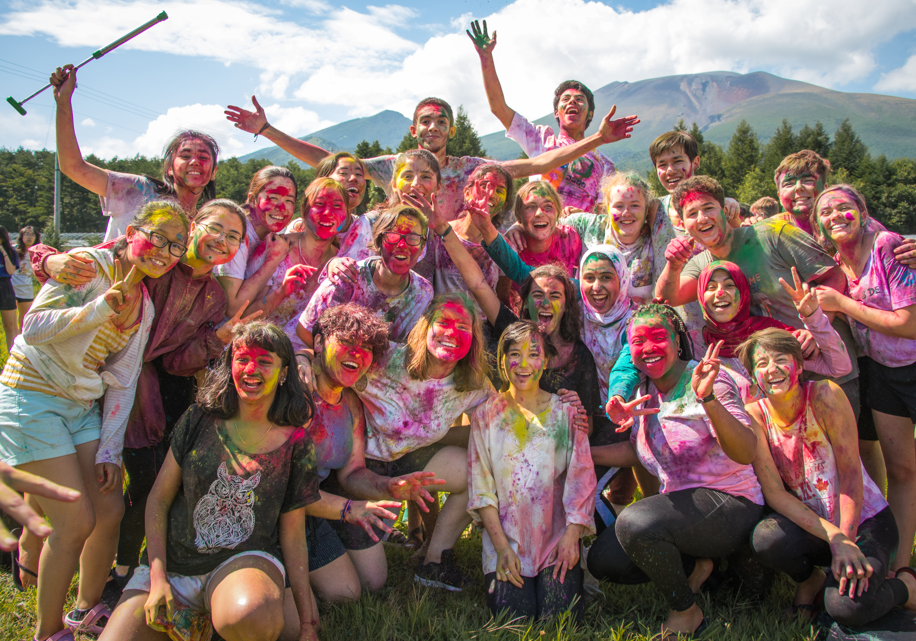 Leadership Programme: Through an innovative leadership programme, combining the practice of mindful self-discipline and design innovation, students discover what is most important to them and work to become catalysts for positive change. Leadership practice is integrated into all aspects of life including academics, co-curricular and the residential experience.
Leadership Programme: Through an innovative leadership programme, combining the practice of mindful self-discipline and design innovation, students discover what is most important to them and work to become catalysts for positive change. Leadership practice is integrated into all aspects of life including academics, co-curricular and the residential experience.
Student-led Approach: Student autonomy is emphasised and encouraged. Students are empowered to start and lead ![]() clubs, plan activities and campus events and establish and maintain policies surrounding dorm life.
clubs, plan activities and campus events and establish and maintain policies surrounding dorm life.
Japanese Language & Culture: The opportunity to study Japanese language, regular outings and excursions give students opportunities to explore Japanese culture, history and traditions. Students can learn the art of Japanese flower arranging and attend a tea ceremony; visit castles, hot springs, temples and shrines; join in the fun at local festivals and performances; visit museums, plan a homestay and more!
Academic curriculum
Our students follow the International Baccalaureate Diploma Programme (IBDP), which is made up of three core components and six subject groups.
Average class size: 18 students
International Baccalaureate Diploma Programme
Core components
- Theory of Knowledge: students reflect on the nature of knowledge and on how we know what we claim to know.
- The Extended Essay: an independent, self-directed piece of research, finishing with a 4,000-word paper.
- Creativity, Activity, Service (CAS): students take part in a range of experiences and at least one project.
Subjects
- Studies in language and literature: English Literature, English Language and Literature, Chinese Literature, Japanese Literature, Spanish Language and Literature, School Supported Self-Taught Literature
- Language acquisition: English B, Japanese B, Spanish B, Chinese Ab Initio, Japanese Ab Initio, Spanish Ab Initio
- Individuals and societies: Economics, History, Global Politics
- Sciences: Biology, Chemistry, Physics, Environmental Systems & Societies, Computer Science
- Mathematics: Maths - Analysis and Approaches, Maths - Applications and Interpretation
- The arts: Visual Arts, Theatre, Film
Co-curricular
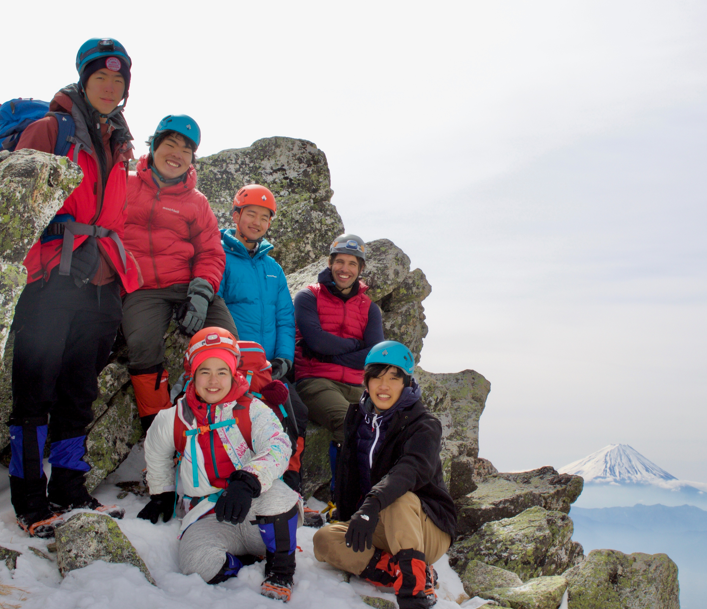 All students at UWC complete a co-curricular programme called Creativity, Activity and Service (CAS) - an integral part of the IB qualification. Students get the opportunity to choose a physical, a creative and a social service activity.
All students at UWC complete a co-curricular programme called Creativity, Activity and Service (CAS) - an integral part of the IB qualification. Students get the opportunity to choose a physical, a creative and a social service activity.
Students are in charge of developing and running their own CAS projects in groups of eight or more students, so projects change from year to year. For example, recent CAS projects have addressed clothing recycling, environmental issues and sustainability, fundraising and support for Nepal, educational support for refugees in Asia, LGBTQ+ community advocacy, food waste and youth outreach.
Physical activities:
- Aikido
- Badminton Mixed
- Ballet
- Bouldering Club
- Boys Basketball
- Boys Volleyball
- Casual Football
- Competitive Soccer
- Cross Country/Triathlon
- Curling
- Dance
- Girls Basketball
- Girls Gym
- Girls Volleyball
- Gladiator Fitness
- Golf
- Gym & Fitness
- Netball
- Rugby
- Swimming
- Tennis
- Touch Rugby
- Track & Field
- Yoga & Meditation
Creative activities:
- Art
- Band
- Book
- Cataclysm
- Chess
- Debate
- Entrepreneurship
- Fashion/sustainable fashion
- Creative Writing
- Feminism
- Film
- French
- Global Affairs
- International Baking
- ISAK Decorating
- Journalism
- Math
- Merchandise
- Model United Nations
- Orchestra
- Photography
- Politics
- Pottery
- Programming
- Rainbow Alliance
- Tea Ceremony
- TEDx
- Theatre
- Theatre design
- Yearbook
Social service:
- ARDEI
- Peace Forum
- Academic Support Team
- Exhibition
- Game
- Guest Speaker
- ICE - ISAK Cultural Events
- Japanese Excursion
- Lead Ambassador
- Makers
- Peer Support Programme
- Residential Assistants
- SNOW
- Sustainable Farming
- Sustainable School Initiative
- Tech Crew
- Terraforming Club
- Islamic Studies
- Work with elderly
- Work with young children
The Pre-IBDP Programme
UWC ISAK Japan welcomes boarding students between the ages of 15 and 19. 15 year-old students can join the school as part of its 3-year high school programme, which emphasises its flagship Leadership Programme in Grade 10, before merging with the 2-year IBDP in Grade 11 (16-19 year-olds).
Facilities and residences
The UWC ISAK Japan campus is located in Karuizawa, a beautiful mountain resort community located approximately 70 minutes by bullet train from Tokyo. As well as modern facilities, students have regular access to exceptional local athletic facilities.
Facilities
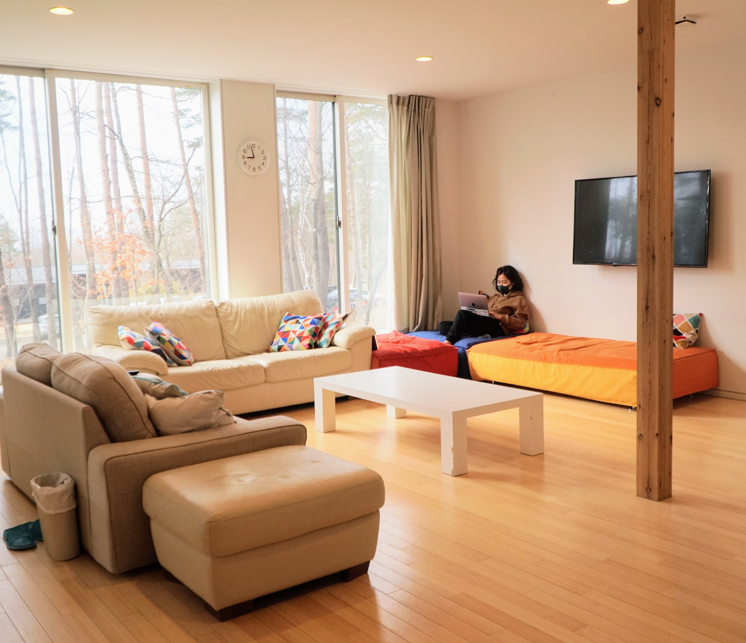 Multi-purpose Centre
Multi-purpose Centre- Theatre stage
- Cafeteria with deck terrace
- Science Labs
- Full-size Gymnasium
- Basketball courts
- Bouldering Wall
- Athletic Field
- Library
- Four Student & Faculty Residences
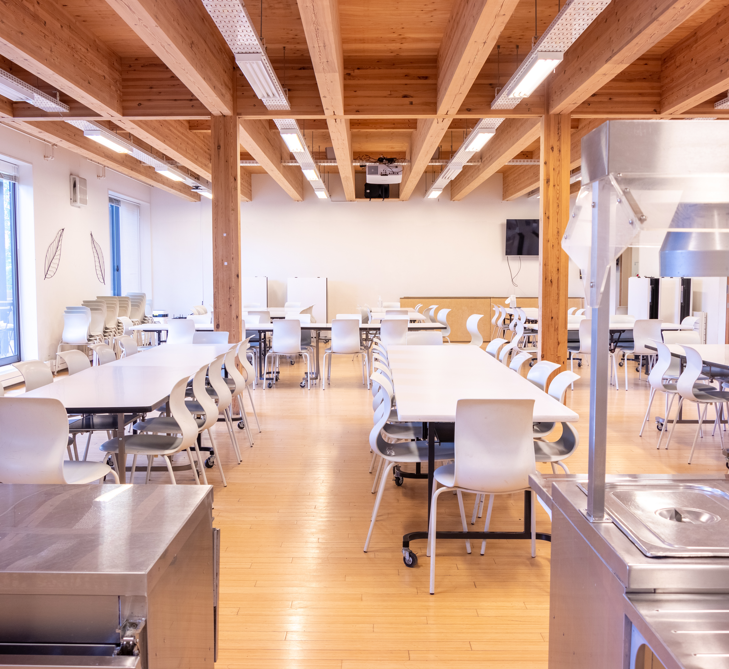 Creative Centre
Creative Centre- Darkroom
- Classrooms for Art, Makerspace, Film & Theatre, and Outdoor Education
- Student Lounge, Study Rooms, University Advising Offices
- Health & Wellness Centre featuring a Health Centre and dedicated rooms for Fitness, Meditation, Counselling and Isolation.
Residential accommodation
UWC ISAK Japan offers both single-sex residences and blended houses with students sharing either a two-person or four-person bedroom. Blended houses have gender-neutral toilets and showers, as well as single-sex showers. Rooms are diverse, with students coming from different countries and cultural backgrounds. Each house includes a common area, a small kitchen and laundry facilities.
Students are expected to return home between Year 1 and Year 2. The school provides on-campus housing or alternatives for students unable to go home for winter break.
Wellbeing support
Medical provisions
- Two full-time nurses
- Weekly campus visits by a local doctor
- Access to local medical and dental facilities
- Students covered by Japan’s National Health Insurance
Academic and emotional wellbeing
The school supports students’ academic and emotional wellbeing through:
- House Mentors who support students in their residential setting
- Two school counsellors providing one-to-one support
- An experienced Pastoral Care team, led by a Deputy Head of Pastoral
